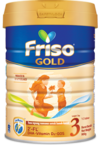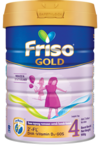Milk for Pregnant Moms — What to Drink During Pregnancy
Want to know what to drink during pregnancy, the importance of materna.... read more

Confinement is a post-pregnancy ritual that helps mothers recuperate and heal after giving birth. It usually involves rules, regulations, guidelines, and diet requirements based on traditional post-natal knowledge which mothers follow for up to 44 days after their child’s birth.
In Chinese traditions, confinement or zuo yue zi means “sitting the month” or simply put, means to rest postpartum. This principle goes back to the Han Dynasty in China. Malaysia, as a multinational country made up of many cultures and traditions, has a varying amount of best confinement practices.. While they may differ, its true purpose is the same: to support mothers, especially first-time mothers. With the prevalence of medical professionals and experts today, new mothers have a proper support system when healing and recuperating from the emotional and physical tolls of childbirth. In Kuala Lumpur alone, there are a lot who are in the business of confinement with the same goal of helping mums.
Here’s the meaning of a confinement centre: A place that offers post-natal confinement services that ensure the mother and baby’s welfare are fully taken care of.
So what exactly do mothers do when they decide to go to confinement centres? Some mums have the first impression that they are like clinics or hospitals, but in fact, they are nothing like that! Think of it as a Mummy Headquarters that is away from the household, allowing them to spend time healing, bonding with their child and learning new parenting skills like basic care, bathing, burping, changing, massaging their child. Confinement centres are also great for the mothers’ community, where they get to meet and bond with fellow mothers who share a recent unique experience. It’s a great place to gain insights and playmates for their newborn child.
Are you a first-time mother yourself? Now, you might ask: what should I look for when choosing a confinement centre? There’s no exact science for it, but there are basic offerings that are must-haves and a few other pointers to consider.
Many confinement centres offer different kinds of lodgings, but of course, the price varies as well. Depending on the package that you choose, you are looking at a wide selection, such as from premium bedrooms with a queen-sized bed and large windows which let natural light flood in, to suites with panoramic views of the city attached to a custom-designed bathroom and a separate wardrobe with a child changing area. You may also be looking at a different size of support staff and meal selections. Naturally, the better the package, the better the perks.
Just know that whichever you choose, you will surely be assured of privacy during your postpartum confinement at a centre.
If you often find yourself asking “what do you need after giving birth” and always arrive at answers like moral support, caretaker or anything equivalent, you should put more emphasis on the support staff. Lucky for you, modern confinement centres come with a fully-trained support staff with professional certification. This includes 24/7 on-call registered nurses, midwives/confinement nannies, lactation consultants, general practitioners in medicine, and health care professional physicians that have a background in paediatrics, prenatal development, and obstetrics & gynaecology. The staff is dedicated to making sure the mom and child are cared for – physically and emotionally. They are also professionally trained to ensure all mums’ mental health is great and be on the lookout for any signs and symptoms if it is not.
Moreover, they guarantee the overall efficacy of confinement, and they are also on duty for infection prevention and control should the need arise. Nowadays a simple cough needs to be attended to in order to avoid the spread of any disease or bacteria of any kind within the centres.
The last thing you need is to have your postpartum confinement at a centre that has very loose rules and regulations. To prevent this, look for centres that have documented policies that are available both offline (brochures, a detailed invoice) and online (main website, social media). Not sure what to be on the lookout for? Ask yourself: What do you need most after giving birth:
Modern confinement centres also offer meals that are tailor-made for new mothers. This includes meal ingredients that support the health, good nutrition, and healing of the new mum, and even special diets for those who suffer from complications during childbirth such as hypertension or diabetes. These diets and recipes also ensure to maintain the wellbeing of mother and child. Finally, these diets and recipes also aid the mums to attain their pre-pregnancy vitality and figure.
Happiness comes in comfort and a little pampering – much like a retreat for mums! So these extras may tickle your fancy, should you want a little upgrade in confinement centres:
Think of these as ‘add-ons’ from your original package, so make sure you’re up to date with your research so you can choose the right confinement centre that suits all your needs and budget. Don’t forget, in some centres, you’ll find yourself one of only a handful of mums ‘sitting in for the month’ or colloquially known as ‘zhor yuet’. In others, you might find yourself in a large crowd! Most confinement centres also offer a 30-day package which can be extended according to a mum’s specific needs and expectations.
And remember mum, don’t hesitate to ask questions when you choose your confinement centre! In fact, it’s great to ask. Here are some you can review and to give you a head start:
Lastly, community building is essential. Aside from your husband or family, you can trust your mummy friends! It’s almost innate for mums to have helpful behaviour, especially for fellow mums! They’ve been through this before, so they’d probably have some good advice and recommendations for confinement centres. You can always ask around in mummy groups and you can even request to talk to some references who have been to centres before. Start looking into confinement centres early, and you’ll be able to visit to see if the centre is a perfect fit for you.
To address the specific needs of mums-to-be, maternal milk is often recommended as it helps balance both your and your child’s nutritional needs safely. We have formulated Friso® Gold Mum with both mum and child in mind, and its unique Dual Care+ formula supports you on your pregnancy journey. Some of the vital nutrients that Friso® Gold Mum provides you with include:
Vitamin B12 - Needed for red blood cell production and the healthy functioning of the nervous system3.
Folic Acid - Folic acid is essential for growth and division of cells. Folate plays a role in the formation of red blood cells. Folate helps to maintain the growth and development of the foetus4.
Iodine - Essential for the formation of thyroid hormones, which supports brain development5.
Vitamin D - Vitamin D is necessary for the absorption and utilisation of calcium and phosphorus1.
Calcium - Helps in the normal growth and development of bones and teeth2.
Low glycemic index - The glycaemic index (GI) is a rating system for foods containing carbohydrates. It shows how quickly food affects your blood sugar (glucose) level when eaten on its own. The low glycemic index (GI) could help the mother avoid being overweight during pregnancy.
When you consider pregnancy milk powder, it is also best to consider the origins of the milk, the process of manufacturing, nutrient content as well as one which helps you control weight gain during pregnancy. Friso® Gold Mum preserves the natural nutrients of the milk to give you what you need in your pregnancy journey. Now that you are aware of the importance of maternal milk/susu, check out what Friso® Gold Mum has to offer now!



Want to know what to drink during pregnancy, the importance of materna.... read more
Wonder how to deal with morning sickness? Here are some useful tips yo.... read more
This guide summarises the food you should be careful not to eat when p.... read more